The 19th Congress (Cg-19) of the World Meteorological Organization (WMO) was held in Geneva, Switzerland, from 22 May to 4 June. Harald Köthe, Director of ICWRGC as well as acting German hydrological advisor to WMO, and Ulrich Looser, Head of the Global Runoff Data Centre (GRDC), represented the German delegation in the third Hydrological Assembly of WMO with 294 participants from 121 countries.

Harald Köthe, Director ICWRGC, and Dr. Ulrich Looser, Head of GRDC, at the WMO congress
Based on the results of the UN2023 Water Conference in March, the WMO has set itself the priority goal of taking the lead in promoting the “Early Warning for All” initiative. This initiative aims at establishing warning systems for the entire world population for dangerous weather and climate events as well as extreme hydrological events by 2027.
Within this framework, the following progress was agreed for hydrology at the 19th WMO Congress:
- “Accelerate the development of integrated systems and services to address global risks associated with irreversible changes in the cryosphere, downstream impacts on water resources and sea level rise” was added as a new goal to the WMO Strategic Plan. It includes strong hydrology components and contributions (Resolution 2 Cg-19 and Resolution 6 Cg-19).
- The terms of reference of the Hydrological Coordination Commission were revised (Resolution 7 EC-77) and a new function of Hydrological Advisor to the President of WMO (exercised by the Chair of the Hydrological Assembly) was introduced (Resolution 8 Cg-19).
- With the same resolution (Res.8 Cg-19), the Congress requested the Executive Committee to submit proposals to increase the contribution of hydrologists in the Governing Board and subsidiary bodies of WMO. These proposals will be considered at the next Congress.
- The process for reviewing and revising the Hydrology Action Plan was established (Resolution 7 Cg-19).
- The WMO hydrological database (WHOS) was recognised as part of the WMO Information System (WIS 2.0). Member countries were invited to contribute to its expansion. The significant contribution of the Global Hydrological Cycle Observing System (WHYCOS), the Global Hydrometric Support Centre (HydroHub), and the Global Runoff Data Centre (GRDC) was reaffirmed (Resolution 4.2(4)/2 Cg-19).
- The extension of the WMO HelpDesk to include the Associated Programme for Flood Management and the Integrated Programme for Drought Management was agreed in order to complete the available information for water management (Resolution 19 Cg-19).
- Regional plans for the implementation of the WMO Global Hydrological State of Resources (HydroSOS) system were approved (Resolution 9 Cg-19).
- The establishment of hydrological service centres within the WMO Integrated Processing and Prediction System (WIPPS) created new opportunities for national hydrological institutions.
- The criteria for recognition of 75+ and 100-year time series stations were adopted.
- The latest developments and benefits of artificial intelligence in operational hydrology, interactions with the private sector and the latest hydrological research were part of the agenda at the Congress and Hydrological Assembly.
- A declaration on gender equality and women’s empowerment was read at the Hydrological Assembly and the Congress Gender Day to drive change in the next 4 years.
ICWRGC and BfG support these developments by means of their global water databases (GRDC, GWDC and ISMN) as well as DWD’s GPPC through research products with German scientists.
Related links:



